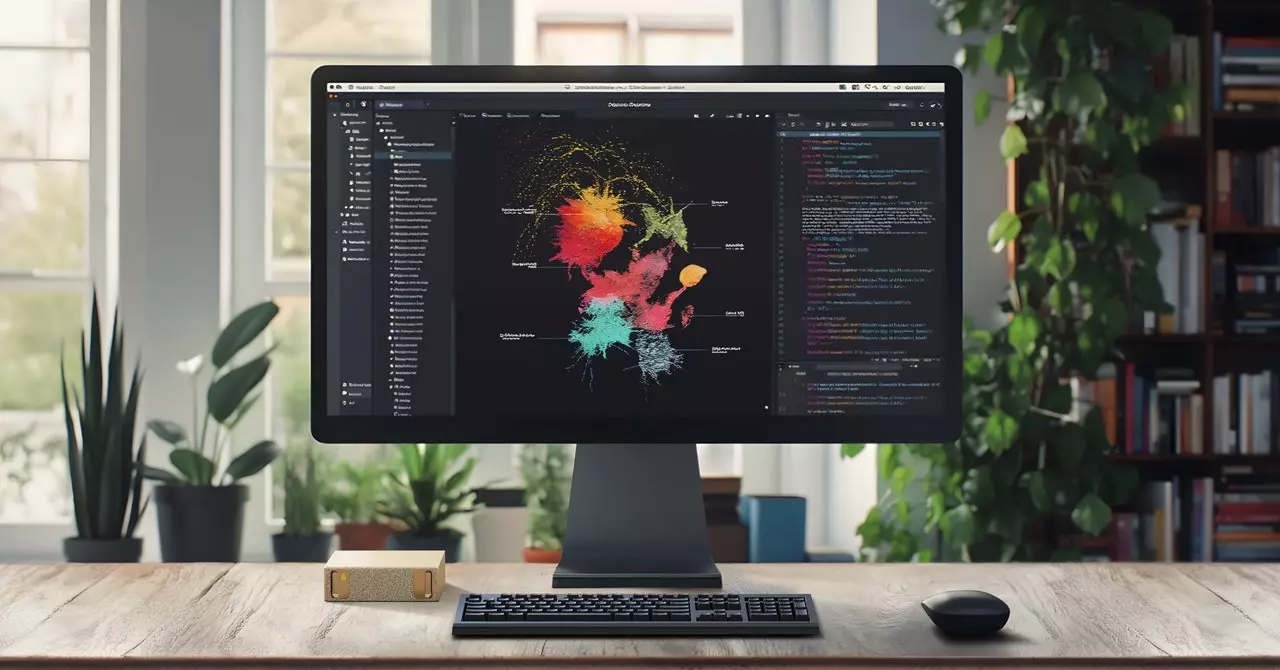As interest in artificial intelligence (AI) spirals, Nvidia stands at the forefront of this technological revolution. Traditionally, the company has thrived by selling sophisticated computer chips to large enterprises developing proprietary AI models. However, with a shift in consumer interests toward open-source and DIY AI, Nvidia has made a distinctive move by announcing the release of its new “personal AI supercomputer.” Set to launch later this year at a starting price of $3,000, this device aims to democratize AI access, allowing individuals to harness the power of advanced computing technology right from their homes or offices.
The newly unveiled system, known as Digits—short for “Deep Learning GPU Intelligence Training System”—is roughly the size of a small book. This compact powerhouse houses the Nvidia “superchip” GB10 Grace Blackwell, specifically engineered for swift AI computations. With an impressive 128 gigabytes of unified memory and a staggering 4 terabytes of NVMe storage, the Digits machine is designed to tackle massive AI applications.
Jensen Huang, Nvidia’s founder and CEO, shared during his keynote at CES that this innovation symbolizes a turning point in the landscape of AI technology. “Placing an AI supercomputer on the desks of every data scientist, AI researcher, and student empowers them to engage and shape the age of AI,” he boldly stated. This announcement indicates a burgeoning trend of making powerful tools accessible, thereby leveling the playing field for aspiring AI enthusiasts.
Empowering Individuals with Advanced Processing Capabilities
Digits’ specifications highlight its capacity to run large language models containing up to 200 billion parameters, a significant measurement of model complexity. Traditionally, accessing such computational power required relying on external cloud services such as AWS or Microsoft Azure or investing heavily in custom-built AI systems. Digits alters this paradigm, enabling individuals to handle sophisticated tasks without the dependency on cloud resources or expensive infrastructures.
Moreover, when two Digits machines are linked through Nvidia’s high-speed interconnect, they enable the execution of Meta’s Llama model—boasting 405 billion parameters. This feature is revolutionary for hobbyists and researchers alike, providing an opportunity to experiment and innovate in AI capable of approaching functionalities seen in proprietary giants like OpenAI and Google’s offerings.
Nvidia’s alignment towards consumer-focused computing stems from an era when AI technologies have become integral to numerous sectors, including finance, healthcare, and education. Their prominent success amid soaring demand for AI capabilities is no accident; it reflects a well-constructed roadmap that anticipates and reacts to industry shifts. The stock price surge over the past years signifies how deeply entrenched Nvidia has become as the AI landscape evolves.
With Digits entering the market, the company reinforces its commitment to being a driving force in both the commercial and consumer sectors of AI development. While existing products like Jetson offer entry-level AI capabilities starting at approximately $250, Digits provides a leap toward high-end processing for serious AI practitioners. This strategic diversification not only enhances Nvidia’s brand but strengthens its position as an industry leader.
The Future of Personal AI Computing
As we venture deeper into the age of AI, Nvidia’s Digits may serve as a catalyst for a new wave of innovation. Its potential to empower researchers, students, and tech enthusiasts could foster a grassroots movement in AI, leading to discoveries that were previously confined to major corporations with vast resources. While high-performance computing has largely been monopolized by data centers, the introduction of such consumer-friendly hardware challenges this status quo.
Nvidia’s initiative to launch a personal AI supercomputer positions it as a pioneer in an evolving market. This move underscores the necessity of inclusive technological access while spearheading a potential cultural shift towards innovative AI applications. Digits represents not just a machine, but the start of a new chapter where AI capabilities become accessible to a wider audience, inspiring a community of next-generation innovators.

